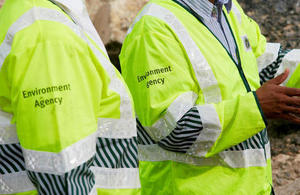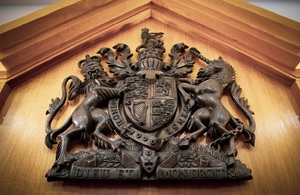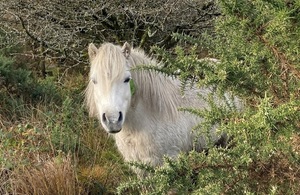- Owner of Chelsea FC sees his assets frozen, a prohibition on transactions with UK individuals and businesses, a travel ban and transport sanctions imposed.
- Abramovich’s one time business partner, leading industrialist Oleg Deripaska, also sanctioned with the same measures.
- Putin’s right-hand man Igor Sechin and four more of Putin’s inner circle targeted with asset freeze and travel ban.
- Economic Crime Bill coming into force next week will allow UK Government to move further and faster than ever on sanctions.
Foreign Secretary Liz Truss has today (Thursday 10 March) announced a full asset freeze and travel ban on seven of Russia’s wealthiest and most influential oligarchs, whose business empires, wealth and connections are closely associated with the Kremlin.
As part of the UK’s leading efforts to isolate Putin and those around him, these oligarchs – who have a collective net worth of around £15bn – will have their assets in the UK frozen, they are banned from travelling here and no UK citizen or company may do business with them.
Those newly-sanctioned by the UK include Roman Abramovich, owner of Chelsea Football Club, worth more than £9 billion; leading industrialist Oleg Deripaska worth £2 billion, and Rosneft CEO Igor Sechin. A further group of Russia-based oligarchs close to Putin have also been placed under sanction. Those sanctioned today are:
- Roman Abramovich owner of Chelsea FC and has stakes in steel giant Evraz and Norilsk Nickel
- Oleg Deripaska has stakes in En+ Group
- Igor Sechin is the Chief Executive of Rosneft
- Andrey Kostin is Chairman of VTB bank
- Alexei Miller is CEO of energy company Gazprom
- Nikolai Tokarev is president of the Russia state-owned pipeline company Transneft
- Dmitri Lebedev is Chairman of the Board of Directors of Bank Rossiya
Prime Minister Boris Johnson said:
There can be no safe havens for those who have supported Putin’s vicious assault on Ukraine.
Today’s sanctions are the latest step in the UK’s unwavering support for the Ukrainian people. We will be ruthless in pursuing those who enable the killing of civilians, destruction of hospitals and illegal occupation of sovereign allies.
Foreign Secretary Liz Truss said:
Today’s sanctions show once again that oligarchs and kleptocrats have no place in our economy or society. With their close links to Putin they are complicit in his aggression.
The blood of the Ukrainian people is on their hands. They should hang their heads in shame.
Our support for Ukraine will not waver. We will not stop in this mission to ramp up the pressure on the Putin regime and choke off funds to his brutal war machine.
These sanctions are the latest step in the UK’s response to Putin’s illegal and unprovoked invasion, designed to ensure he fails in Ukraine by crippling Russia’s economy supporting his war machine. The UK has been at the forefront of this effort, shutting out large proportions of whole sectors of the Russian economy, such as its defence industry, its financial institutions and its transport sector. The UK has already sanctioned more than 200 of Russia’s most significant and high-value individuals, entities and subsidiaries since the invasion, with over 500 of them now covered by the UK’s sanctions list.
The Economic Crime Bill coming into force next week will also significantly simplify the process of imposing sanctions, allow the UK to more easily sanction individuals, stop oligarchs threatening the UK with multi-million pound lawsuits for damages at the taxpayer’s expense and also allow the UK to mirror allies’ designations. The UK will keep going further, faster and deeper to punish Putin’s regime for this callous war.
The UK will continue to lead global efforts to provide Ukraine with economic, diplomatic, humanitarian and defensive support.
Given the significant impact that today’s sanctions would have on Chelsea football club and the potential knock on effects of this, the Government has this morning published a licence which authorises a number of football-related activities to continue at Chelsea. This includes permissions for the club to continue playing matches and other football related activity which will in turn protect the Premier League, the wider football pyramid, loyal fans and other clubs. This licence will only allow certain explicitly named actions to ensure the designated individual is not able to circumvent UK sanctions. The licence will be kept under constant review and we will work closely with the football authorities.
Notes to Editors
Asset freeze: an asset freeze prevents any UK citizen, or any business in the UK, from dealing with any funds or economic resources which are owned, held or controlled by the designated person and which are held in the UK. It will also prevent funds or economic resources being provided to or for the benefit of the designated person.
Travel ban: a travel ban means that the designated person must be refused leave to enter or to remain in the United Kingdom, providing the individual to be an excluded person under section 8B of the Immigration Act 1971.
Transport sanctions: recently introduced powers make it a criminal offence for any Russian aircraft to fly or land in the UK, and give the Government powers to remove aircraft belonging to designated Russian individuals and entities from the UK aircraft register, even if the sanctioned individual is not on board. Russian ships are also banned from UK ports.
-
Roman Abramovich has stakes in steel giant Evraz, Norilsk Nickel and owns Chelsea FC. He sold a 73% stake in Russian oil firm Sibneft to state-owned gas titan Gazprom for £9.87 billion in 2005. His net worth is an estimated £9.4 billion. He is one of the few oligarchs from the 1990s to maintain prominence under Putin. None of our allies have yet sanctioned Abramovich.
-
Oleg Deripaska has stakes in En+ Group, a major extractives and energy company which owns UC Rusal, one of the world’s major aluminium producers. He has a multi-million pound property portfolio in the UK. His net worth is an estimated £2 billion. The US designated Deripaska in 2018.
-
Igor Sechin is the Chief Executive of Rosneft, a Russian state oil company and particularly close and influential ally of Putin. Sechin has been sanctioned by the US and EU.
-
Andrey Kostin is Chairman of VTB bank, the second largest bank in Russia. VTB Bank was designated by the UK on 24 February 2022. Kostin is a close associate of Putin, and has long supported Kremlin objectives through VTB Bank. His net worth is an estimated £379 million. Kostin has been sanctioned by the US and EU.
-
Alexei Miller is CEO of energy company Gazprom, making him one of the most important executives supporting the Russian Government. Miller served under Putin in the 1990s when Putin was deputy mayor in St Petersburg. Miller has been sanctioned by the US.
-
Nikolai Tokarev is president of the Russia state-owned pipeline company Transneft. He first met Putin, when both served as KGB officers in Dresden in East Germany in the 1980s. They have remained closely associated ever since. Tokarev has been sanctioned by the US and EU.
-
Dmitri Lebedev is Chairman of the Board of Directors of Bank Rossiya. The UK designated Bank Rossiya, widely considered to be the Kremlin’s private bank, on 22 February 2022. Lebedev was sanctioned by the US in 2016.
*Net worth calculated by Forbes.


